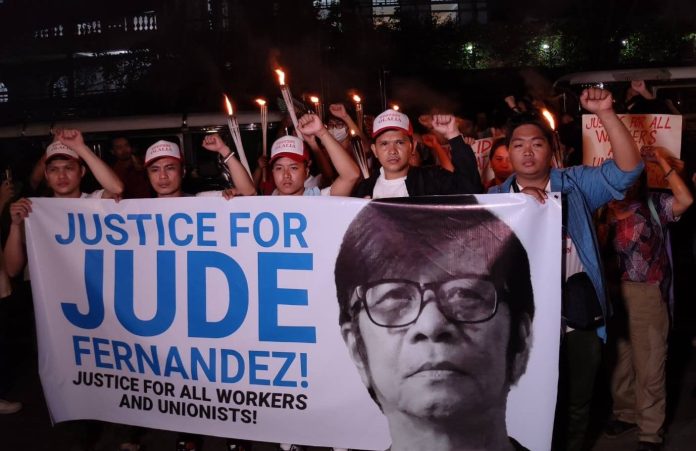New York-based Human Rights Watch (HRW) denounced the attacks on labor rights activists in the Philippines following the killing of a labor leader.
In a statement issued on Monday, HRW said the killing of Jude Thaddeus Fernandez “underscores the continued targeting of unionists” in the country.
Fernandez was killed by the Philippine police in his home in Binangonan town on September 29, 2023. The police claimed the labor leader “fought back” while they were serving the warrant.
Bryony Lau, HRW’s deputy Asia director, said the killing of Fernandez, who was one of the leaders of Kilusang Mayo Uno (KMU), “fits into a broader pattern of harassment and violence against labor leaders in the Philippines”.
He said authorities should “independently investigate the police actions and pursue prosecutions as warranted”.
HRW reported that Fernandez’s colleagues believe “police are using the claim of ‘nanlaban’ (fought back), a commonly used defense by law enforcement officers for extrajudicial killings, to justify shooting him”.
According to KMU, at least 72 workers and unionists have been killed since 2016. Four of these deaths occurred after the high-level mission of the International Labour Organization (ILO) to the Philippines in January.
ILO’s mission aimed to investigate the killings of workers and union leaders. “Philippine authorities only investigated a few of these killings, with an even smaller number leading to prosecution and conviction,” HRW said.
HRW highlighted the case of labor leader Manny Asuncion, who was fatally shot by the police in 2019 in Cavite province.
This incident occurred during what activists have referred to as “Bloody Sunday,” a day in which nine activists lost their lives in a simultaneous police operation.
“Those killed had often been “red-tagged”—alleged to be members of the communist New People’s Army—before they were assaulted,” said HRW.
The group also cited the case of Alex Dolorosa, BPO Industry Employee Network (BIEN) organizer, who had been subjected to red-tagging and was subsequently reported missing in Bacolod City on April 23.
His lifeless body was discovered several days later, bearing multiple stab wounds.
“Philippine authorities have long used red-tagging to harass activists, both within and outside of the labor movement,” said HRW, adding that based on its recent study, “police, military, and local government officials, rather than companies, are usually responsible for red-tagging unionists and workers”.
“Red-tagging intimidates workers, discouraging them from joining unions, and makes unions less likely to join federations, especially those identified as leftist, such as the KMU,” the group said.









